第62章 CHAPTER XXI--THE DUTY OF COURTESY(2)
'I had a courteous letter from the money-lenders, thanking me for my exertions in securing the settlement of their claim, and saying that in accordance with the request in my telegram they had held over proceedings until the day named. I did not quite remember having sent any telegram to them, or any letter either. So, being at a loss, I went to our excellent postmaster and requested that he would verify the sending of a telegram to London from me. He courteously looked up the file; which was ready for transference to the G.P.O., and showed me the form. It was in your handwriting.' He paused so long that Leonard presently said:
'Well!'
'It was signed Jasper Everard. Jasper Everard! my name; and yet it was sent by my son, who was christened, if I remember rightly, Leonard!' Then he went on, only in a cold acrid manner which made his son feel as though a February wind was blowing on his back:
'I think there need not have been much trouble in learning to avoid confusing our names. They are really dissimilar. Have you any explanation to offer of the--the error, let us call it?' A bright thought struck Leonard.
'Why, sir,' he said, 'I put it in your name as they had written to you. I thought it only courteous.' The elder man winced; he had not expected the excuse. We went on speaking in the same calm way, but his tone was more acrid than before:
'Good! of course! It was only courteous of you! Quite so! But Ithink it will be well in the future to let me look after my own courtesy; as regards my signature at any rate. You see, my dear boy, a signature is queer sort of thing, and judges and juries are apt to take a poor view of courtesy as over against the conventions regarding a man, writing his own name. What I want to tell you is this, that on seeing that signature I made a new will. You see, my estate is not entailed, and therefore I think it only right to see that in such a final matter justice is done all round. I therefore made a certain provision of which I am sure you will approve.
Indeed, since I am assured of the payment of your debts, I feel justified in my action. I may say, inter alia, that I congratulate you on either the extent of your resources or the excellence of your friendships, or both. I confess that the amounts brought to my notice were rather large; more especially in proportion to the value of the estate which you are some day to inherit. For you are of course to inherit some day, my dear boy. You are my only son, and it would be hardly--hardly courteous of me not to leave it to you. But I have put a clause in my will to the effect that the trustee's are to pay all debts of your accruing which can be proved against you, before handing over to you either the estate itself or the remainder after its sale and the settlement of all claims. That's all. Now run away, my boy; I have some important work to do.'
The day after her return from Heply Regis, Stephen was walking in the wood when she thought she heard a slight rustling of leaves some way behind her. She looked round, expecting to see some one; but the leafy path was quite clear. Her suspicion was confirmed; some one was secretly following her. A short process of exclusions pointed to the personality of the some one. Tramps and poachers were unknown in Normanstand, and there was no one else whom she could think of who had any motive in following her in such a way; it must be Leonard Everard. She turned and walked rapidly in the opposite direction.
As this would bring her to the house Leonard had to declare his presence at once or else lose the opportunity of a private interview which he sought. When she saw him she said at once and without any salutation:
'What are you doing there; why are you following me?'
'I wanted to see you alone. I could not get near you on account of that infernal old woman.' Stephen's face grew hard.
'On account of whom?' she asked with dangerous politeness.
'Miss Rowly; your aunt.'
'Don't you think, Mr. Everard,' she said icily, 'that it is at least an unpardonable rudeness to speak that way, and to me, of the woman Ilove best in all the world?'